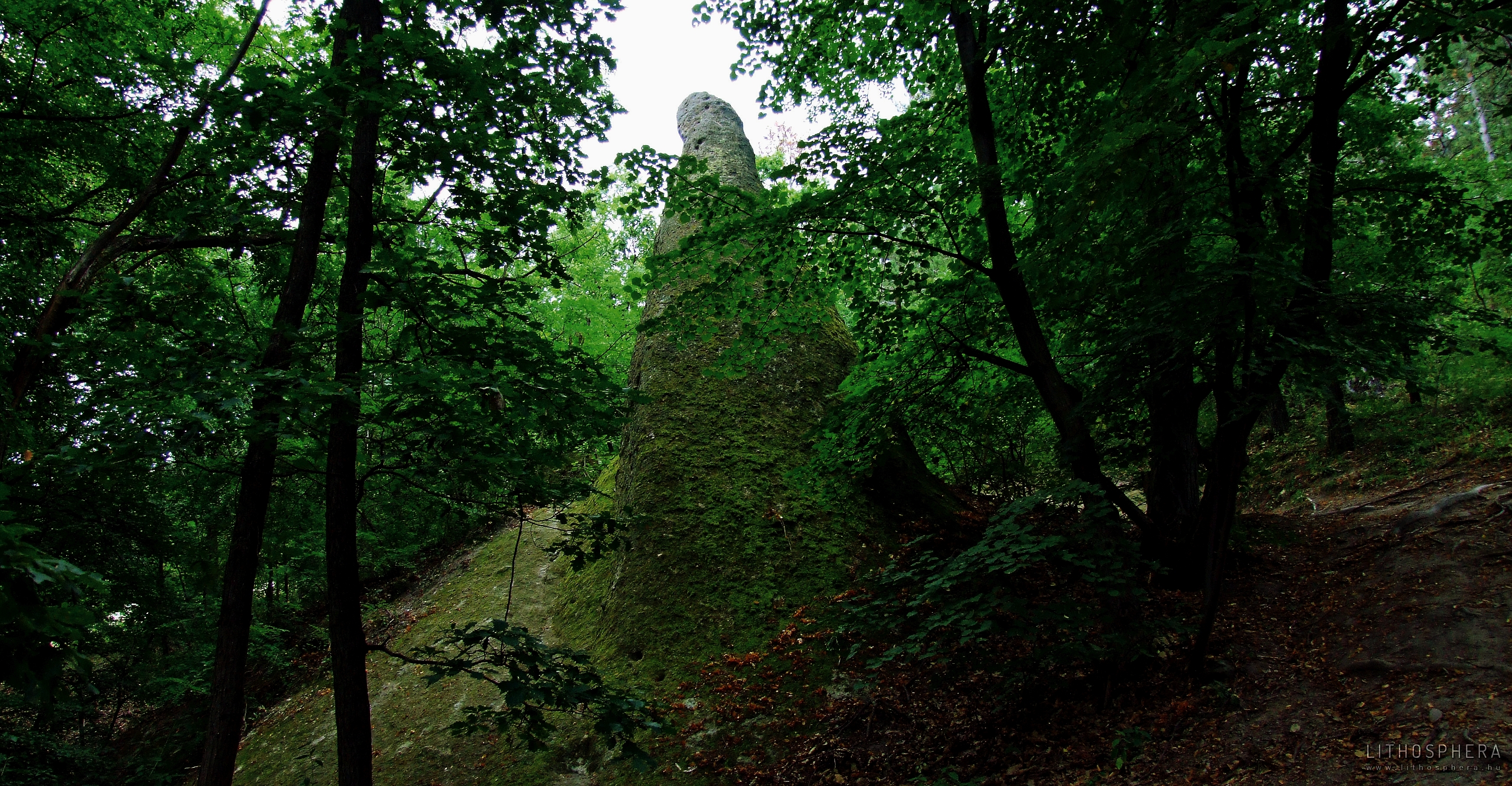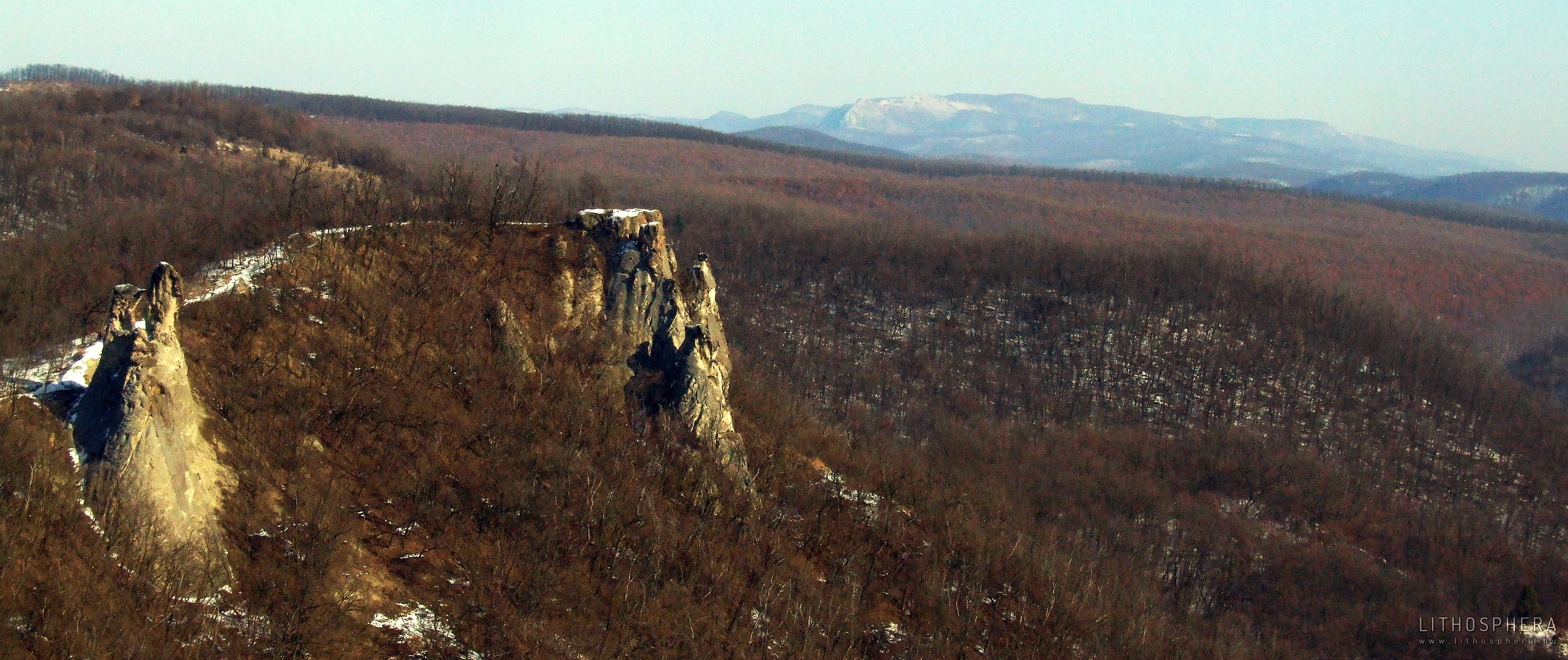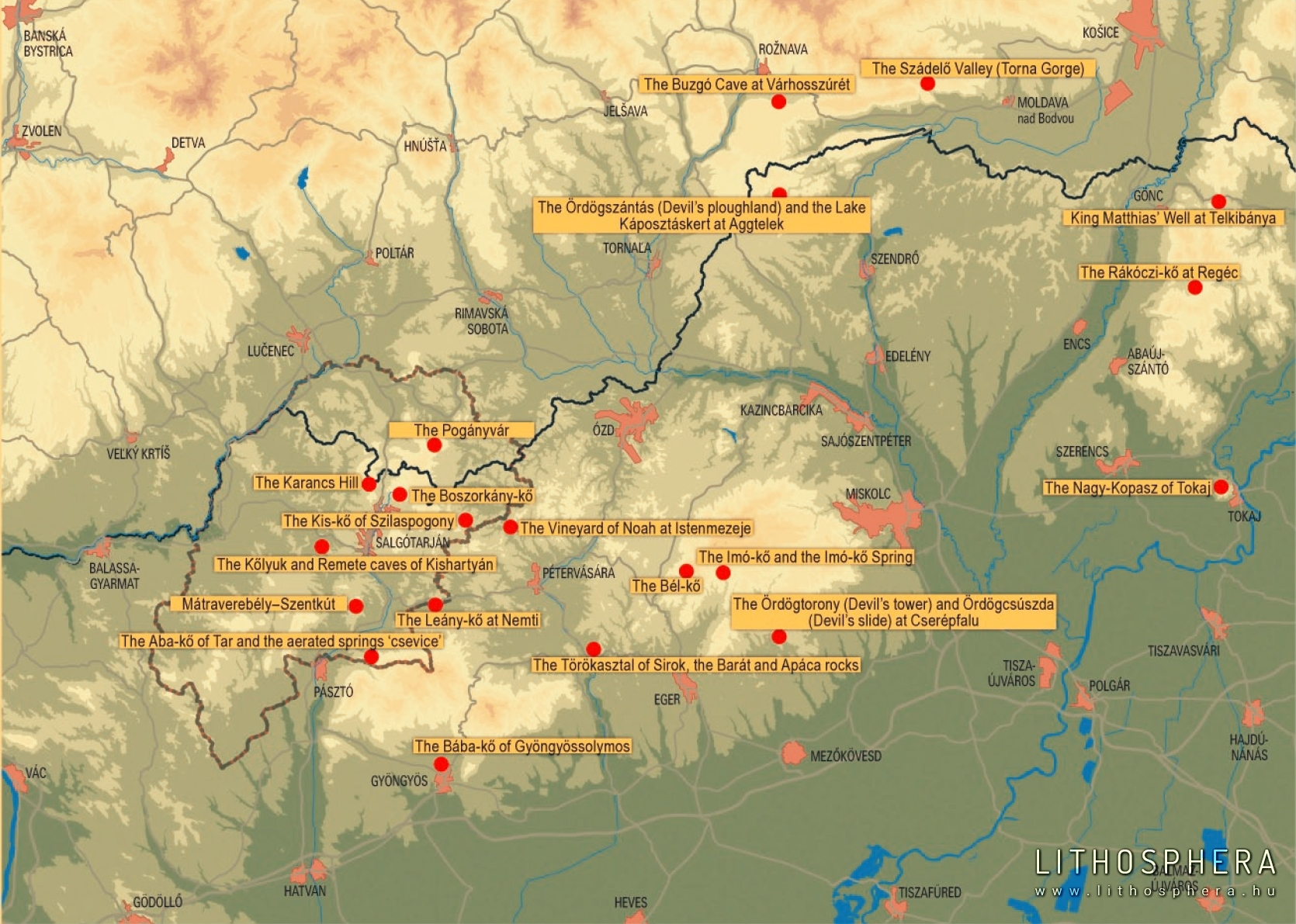Marked stones and places of fable in the Mátra Forest (NE-Hungary)
(Written and compiled by: Csaba Baráz, Gábor Kiss)
Marked stones, places of fable are rock formations, other geological, geomorphologic and hydrologic formations or geographical places that are related to some kind of sacral tradition (local legends, origin myths), or that were transformed or carved due to the spiritual or religious inspiration of human beings, bearing the traces of the mankind’s non-profane forming activities. Marked: labelled, tagged; or figuratively: special, remarkable, unique. Those sacral (sacred, holy, heaven-born), cultic (linked with religious activities), or magic (entrancing, enchanting, in some cases satanic, witching) landforms, rock formations, archaic stone structures, stone recessions (rock chambers, cellar, cabins) are classified as such that – according to the traditions – transmit the message (or impact) of powers above the level of common, everyday existence.
Legends, myths connected to given natural features, landscape elements – as, for example, the motive of lapidifying – mean more than notions inspired by the form and their origin can be traced back to deeper reasons: the manifestation of this more hidden effect is the so-called genius loci, i.e. the spirit of the place. Marked geographical places present in the folklore, or in literature, geological formations, landforms with origin myths, and place-names with reference to certain ceremonies, some kind of sacrament, or cultic practises basically represent the sacral dimensions of the landscape (metageography) (Baráz, Cs. 2002/a).

The cinder cone of the Ördögtorony (Devil’s tower) stands at the side of the Mész-tető (Photo by Cs. B.)
A broader definition of marked stones and places of fable, beyond the sacral level, also includes the profane landscape elements and local legends related to everyday life, economic activities, scientific research, as these geographical locations may also be part of our cultural heritage.

